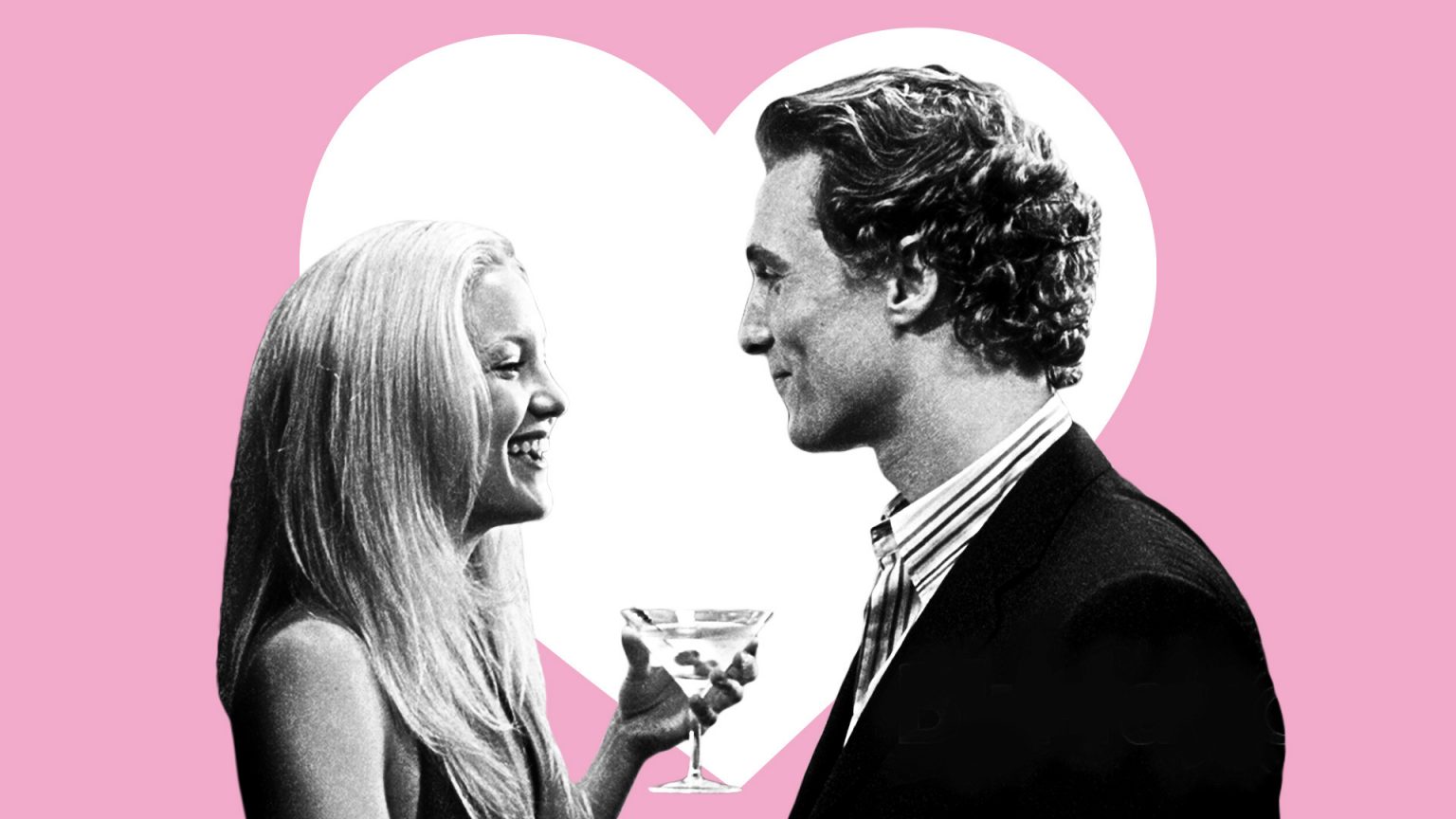What movies come to mind when you think of “romantic comedy?” Maybe you think about the nineties, and Hugh Grant, Meg Ryan, and Nora Ephron. Or, you have a soft spot for Love Actually or conjure memories of Kate Hudson riding a moped with Matthew McConaughey. Your ability to readily rattle off a list of favorites points to the idea that, more than any other cinematic genre, the romantic comedy follows a narrative structure that instantly makes them recognizable. But viewed more closely, what you might find is a genre that defies easy summation.
First, there’s a protagonist who, for one reason or another, seeks love. They could be a workaholic who has lost sight of what’s important in life, or perhaps they’ve gone through a rough breakup with an unsympathetic partner. They likely live in a major U.S. city, in an apartment far too nice for the amount of money they make, and they’re surrounded by token friends and unsuitable romantic prospects.
Then there’s the “meet-cute,” in which the two characters who are meant to together first interact in some spontaneous and endearing way. In The Wedding Planner, Matthew McConaughey saves Jennifer Lopez from a rogue dumpster careening down the street. In Something’s Gotta Give, Jack Nicholson’s heart attack bonds him to Diane Keaton. In Serendipity, John Cusack and Kate Beckinsale adorably try to buy the same pair of gloves. Maybe the pair works together, or maybe they were childhood friends. Either way, they then are given plenty of opportunities to share the screen over the course of the film.
It’s also common — and frequently necessary — for the two to initially antagonize each other. In As Good As It Gets, Jack Nicholson aggravates Helen Hunt for the majority of the film. How to Lose a Guy in 10 Days finds Kate Hudson deliberately trying to alienate Matthew McConaughey (McConaughey certainly had his day in the romcom sun). In You’ve Got Mail, a reworking of Ernst Lubitsch’s The Shop Around the Corner, small bookshop owner Meg Ryan loathes Tom Hanks’s mega-bookstore businessman attitude while simultaneously falling in love with his online persona. The two characters in question don’t like each other until, eventually, they do.
Then, just as reliably, something forces them apart. In She’s All That, Rachel Lee Cook learns that Freddie Prinze Jr. started dating her because of a bet. Similarly, in 10 Things I Hate About You, Julia Stiles discovers that Heath Ledger was initially paid to go out with her. There’s a sort of “heartbreak montage,” where we witness one or both of the characters attempting to get on without the other, usually set against the backdrop of a sad song that you’ve listened to, on your own, more times than you care to say. In Notting Hill, a wonderfully directed sequence follows Hugh Grant walking through an outdoor market while the seasons change and time pass around him. Someone definitely cries at some point.
In the end, there’s the iconic “grand gesture.” One or both of the characters sacrifices him or herself “on the altar of dignity” (to borrow a line from 10 Things I Hate About You) in order to convey their profound feelings for the other. In The Wedding Singer, Adam Sandler serenades Drew Barrymore on an airplane, in front of her fiancé. Drew Barrymore makes her own gesture in Never Been Kissed, when she stands alone on the pitcher’s mound in a packed baseball stadium, waiting for her love to come and give her that titular first kiss.
Memorable lines abound, too. In As Good As It Gets, Nicholson finally admits to Hunt, “You make me want to be a better man.” In Jerry Maguire, Tom Cruise and Renée Zellweger hit the audience with that one-two punch of, “You complete me” and “You had me at hello.” The infamous “hacky sack” monologue from She’s All That proves that the lines don’t always have to be poetic classics in order for an audience to recall them.
Lighthearted, and great for dates and family viewing, romantic comedies really are that simple, aren’t they? Well, maybe not. Let’s backtrack. Sure, a lot of them, from The Holiday to Fool’s Gold, is indeed family-friendly. Yet plenty of classics, like When Harry Met Sally, Pretty Woman, and even Jerry Maguire and Love Actually, have R-ratings, and plenty of scenes you wouldn’t want to watch with your parents. Sweet Home Alabama doesn’t take place in a city and, in Notting Hill and Four Weddings and a Funeral, Hugh Grant rarely antagonizes anyone, let alone his respective love interests, Julia Roberts and Andy MacDowell. There’s not much of a grand gesture in 500 Days of Summer, also: Joseph Gordon Levitt and Zoey Deschanel break up, and the film’s final moment of romantic hope is a subtle one. What about that tried-and-true initial meet-cute? In Sleepless in Seattle, a quintessential rom-com, Tom Hanks and Meg Ryan don’t meet until the very end of the film.
For every genre-defining element and classic moment, there’s an equally iconic exception that also defines romantic comedy. Ultimately it seems, rather than strictly adhering to formula, many of the best romantic comedies defy them. The only real prerequisites seem to be that there must be romance and comedy. Other than that, romcoms represent a living, breathing, and evolving type of film, perhaps one that doesn’t get the credit it deserves. It’s a genre that one can spot immediately yet, in a strange way, it can be indefinable. Is Yorgos Lanthimos’s The Lobster a romcom? While many (even the good ones) can be formulaic and familiar, there are just as many that are unpredictable, and unexpected, and absolutely fantastic.




